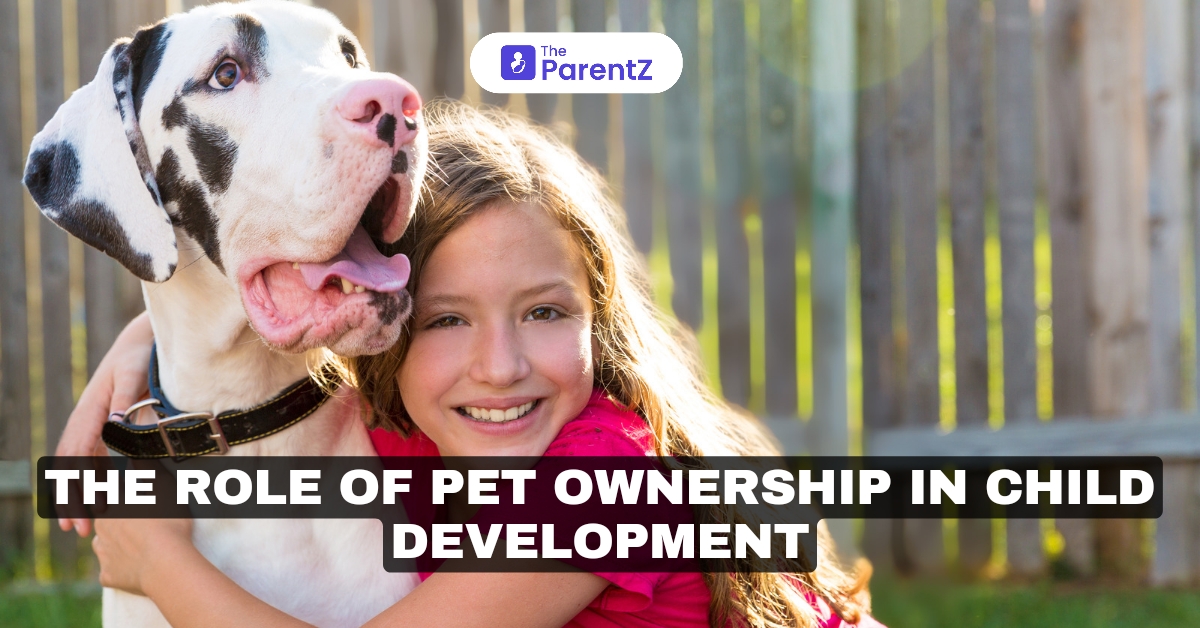Pet ownership can have a profound impact on a child’s development, providing valuable lessons in responsibility, empathy, and companionship. For many families, pets are not just animals but cherished members of the household, contributing to the emotional and social growth of children. This article will explore the various ways in which having a pet can influence a child’s development, from fostering empathy to improving mental health and teaching responsibility.
Emotional Benefits of Pet Ownership
- Companionship and Emotional Support: Pets offer unconditional love and companionship, which can be especially beneficial for children. Having a pet can provide emotional comfort during times of stress or loneliness, offering children a sense of security. For children who struggle with anxiety or depression, pets can serve as a source of emotional stability.
- Teaching Empathy and Compassion: Interacting with a pet teaches children to be compassionate and empathetic. Pets rely on their owners for food, care, and attention, and children learn to recognize and respond to their needs. This sense of responsibility can translate into greater empathy for other living beings, including people.
- Boosting Self-Esteem: Taking care of a pet can boost a child’s self-esteem. As children become more involved in pet care, they gain a sense of accomplishment and pride in their ability to take responsibility for another creature. This can help children feel more confident in their abilities and foster a sense of independence.
Cognitive and Social Development
- Improved Cognitive Skills: Studies suggest that interacting with pets can enhance a child’s cognitive development. For example, reading to pets can improve literacy skills, as children may feel more comfortable reading aloud to a non-judgmental audience. Additionally, caring for a pet requires problem-solving and organizational skills, as children must learn to manage feeding schedules, grooming, and other tasks.
- Social Skills and Communication: Pets can act as social catalysts, helping children develop communication and social skills. Children often talk to their pets, which helps them practice verbal communication in a low-pressure environment. Additionally, pets can help children connect with peers, as shared experiences with animals can foster friendships and social interactions.
- Responsibility and Routine: Pet ownership teaches children about responsibility and the importance of routines. Caring for a pet requires daily tasks such as feeding, walking, and grooming. These responsibilities help children develop a sense of accountability and time management, skills that are essential as they grow older.
Physical Health Benefits
- Promoting Physical Activity: For families with dogs or other active pets, pet ownership can encourage physical activity. Walking, playing, and engaging with pets promotes exercise, which is beneficial for children’s physical health. Regular physical activity can improve cardiovascular health, strengthen muscles, and boost overall well-being.
- Reduced Risk of Allergies and Asthma: Surprisingly, growing up with pets may help reduce the risk of allergies and asthma. Research suggests that children exposed to animals at a young age may develop stronger immune systems, making them less likely to develop allergies. This early exposure to pets can be especially beneficial for children growing up in urban environments.
Psychological and Mental Health Impact
- Stress Reduction: Pets have been shown to reduce stress and anxiety levels in both adults and children. The act of petting an animal can release oxytocin, a hormone associated with bonding and stress relief. For children dealing with academic pressure or social challenges, pets can offer a calming presence.
- Coping with Loss: Owning a pet can also teach children about life and death. While it can be difficult, losing a pet allows children to experience grief and understand the natural cycle of life. This experience can help children develop resilience and coping mechanisms for dealing with other types of loss or disappointment in life.
The Role of Different Pets in Child Development
- Dogs and Cats: Dogs and cats are among the most popular pets for families, offering emotional companionship and opportunities for physical activity. Dogs, in particular, can encourage outdoor play, while cats provide comfort and a calming presence.
- Small Animals: Pets such as rabbits, guinea pigs, and hamsters can teach children responsibility on a smaller scale. These animals require less space but still need regular care and attention, making them ideal for younger children or families with limited living space.
- Fish and Reptiles: While less interactive, fish and reptiles can teach children about the importance of observation and patience. These pets require care but also provide a sense of calm through their quiet presence
Conclusion
Pet ownership plays a significant role in a child’s emotional, cognitive, social, and physical development. Pets offer companionship and emotional support, teaching children valuable life lessons in empathy, responsibility, and compassion. The daily care of a pet helps children develop important routines and enhances their communication and social skills. Additionally, pets contribute to physical health through increased activity and may even reduce the risk of certain allergies. While the type of pet may vary, the impact on a child’s growth and well-being remains profound, providing lifelong benefits. Parents should view pet ownership as an opportunity to foster a child's emotional intelligence, sense of responsibility, and ability to navigate life's challenges with empathy and resilience.








Be the first one to comment on this story.